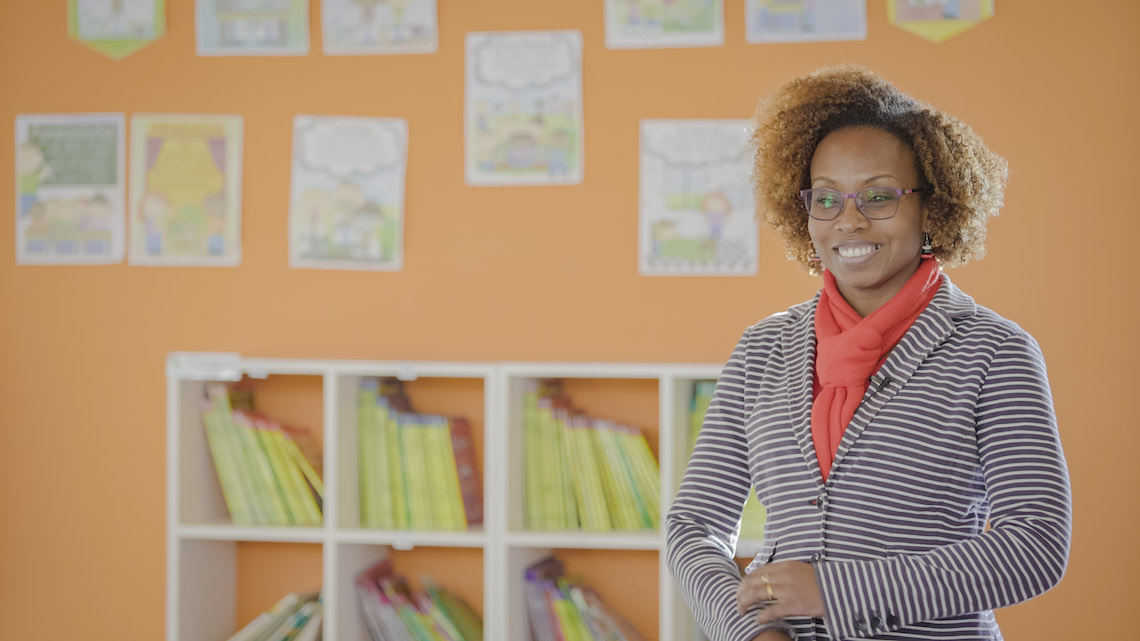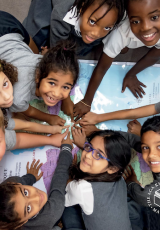Adilia Cabral: Standing Up for Inclusiveness and Respect in Classrooms
Throughout the course of her teaching journey, Adilia Cabral has valued the importance of inclusivity in creating an engaging and fruitful environment in the classroom. She shares details of her evolution during her time at Aga Khan Academy Maputo.
For the Aga Khan Academy Maputo teacher, Adilia Denise Aly Guedes Evaristo Cabral, mutual trust between teachers and students, as well as between students themselves, is of paramount importance for a thriving classroom. It is a crucial factor for any successful learning experience. And how does Adilia ensure this flourishing environment persists in her classroom in Maputo, Mozambique? By supporting students and ensuring they support and respect each other.
“I teach with love because I want to gain the trust and friendship of students. I am always available to listen to them and I want them to feel comfortable sharing their problems with me. I always try to look students in the eye and read their body language, because that's what dictates how I should react with a particular student that day,” she says, adding, “I also make sure there is a spirit of cooperation between students in the classroom.”
Listening to Adilia and the details of her background, education and experience, one feels she chose the perfect career for herself.
“When I was a young student in school, one of my aunts, who was an educator herself, told me that I should follow the teaching profession because she saw I had a passion for that calling. I am glad I listened to her. I love to teach and want to inspire and empower my students to excel in whatever they choose to do.”
Adilia was born in Mozambique in the province of Beira. She has a degree in French teaching from the Pedagogical University in Maputo, Mozambique. After graduating in 2004, she taught in private schools around the cities of Maputo and Matola. She joined the Academy in 2017 where she teaches French Language Acquisition and Portuguese Language and Literature.
The Academy’s International Baccalaureate (IB) curriculum is interwoven with the rich Aga Khan Curricular Strands of ethics, pluralism, economics for development, cultures, governance and civil society. These play a vital role in Adilia’s instruction as she incorporates them in her lessons.
“One way to ensure that in a pluralistic environment there is no discrimination or bullying is to make students respect each other regardless of colour, race or background. This is an aspect that is always reinforced within the Academy through the Aga Khan Academies' Learner Profile, in the classrooms and the way our units are designed.”
Making certain students respect each other and work together is important to Adilia. But so is independent learning. As she explains, “During my class, I prioritise teamwork, group work and peer work as well. All students must respect each other regardless of disagreements. As for training small leaders, the activities are designed so that each student takes action in the units. I always give students opportunities to become independent and look for solutions to overcome problems and obstacles. In my classes, each student contributes to the success of the group.”
Joining the Academy has been a transformative journey for Adilia. It has helped her in her personal and professional growth and has made it possible for her to become a more effective educator.
“The Academy has made me a better instructor by giving me feedback on my teaching,” she states and adds, “also, the institution offers ongoing training courses to make teachers more effective and more successful.”
Reflecting on her time at the institution, Adilia says a day that was especially rewarding and memorable for her was the day she graduated from the Academy’s Teachers Preparation Programme (TPP).
“I felt special,” she recounts with pride. “I felt recognised for what I was doing and it made me aware of how important the training was and how important the teaching profession was. The Academy was placing great trust in me. And I had to work hard for not only for myself, but for my students and for my country. That day was the beginning and not the end of a long journey.”





